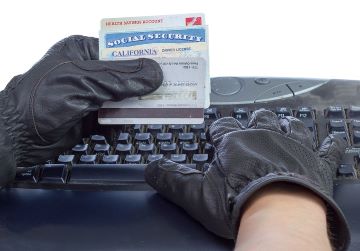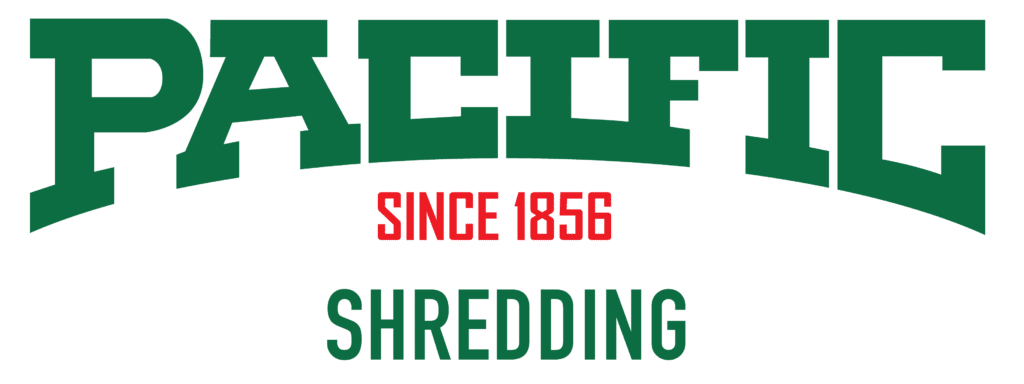Stay Alert During Identity Theft Awareness & Prevention Month

The Federal Trade Commission (FTC) received nearly 1.7 million reports of identity theft in 2021. It was the most common type of complaint filed by consumers last year, and accounts for almost 30% of all reports received by the FTC.
During the holiday season, opportunities and incidences of identity theft increase dramatically. This is why December was chosen as Identity Theft Awareness and Prevention Month, a perfect time to educate the public about how identity theft and how to avoid it.
Whether you’ve always been vigilant about fighting identity theft or feel you have become complacent, we’re sharing our pointers on how to recognize the warning signs of identity theft and prevent yourself from becoming a victim.
Protect Your Financial Information
- When going out, take only the credit or debit cards you absolutely need—not a wallet full. Carrying too many cards increases the chances that one of them will be lost or stolen and used to make fraudulent transactions.
- Check your bank account and credit card statements each month when they arrive so you can detect any transactions you didn’t make. Account numbers are frequently stolen and used to make unauthorized purchases.
- Watch for card skimmers at ATMs, gas pumps, and anywhere else you use your credit card in person.
- Do you receive paper financial statements? Thieves will dig through your recycling and garbage to find these gems. They will even go to great lengths to reconstruct hand-torn or poorly-shredded statements to obtain your personal information.
- Whether you have a garbage bag full of documents or many boxes full, work with a professional shredding company to make it impossible for crooks to benefit from your financial information.
Protect Your Identity
- Most people carry multiple forms of identification, whether a driver license, state ID card, employee ID badge, etc. However, carrying a Social Security card should be avoided. It’s not necessary for everyday transactions, and to thieves, a Social Security Number (SSN) is one of the most valuable pieces of private information they can get their hands on. Leave your Social Security card at home along with any documents that contain your SSN.
- Consider which ID cards you can avoid carrying with you on a regular basis to prevent their loss or theft.
- Never share any identifying information or account numbers over the phone, by email, text, or instant messaging with anyone you don’t know. Avoid pictures or text with identifying documents or information in your social media posts, and check your privacy settings.
- If you are asked to share information, you need to know why it is being requested and what it is being used for. Every organization is required to provide you with these answers when obtaining your information.
- Instead of providing information upon request, contact the business or organization in question directly using their published phone number. This short-circuits phishing attempts.
- When ID cards expire or you are ready to discard documents with your SSN, driver license, or state ID numbers on them, be sure to have a reputable shredding company destroy them.
Protect Your Confidential Documents
- Do you throw documents into the recycle bin as a matter of habit? Recycling is important, but there is a wealth of information in those credit card offers, address labels, receipts, statements and even sticky notes that a dumpster-diving thief would be thrilled to find. It is wise to adopt a “shred everything” policy so you don’t have to inspect everything for personally identifiable information.
- Use a NAID AAA Certified, local residential shredding or drop-off shredding service to securely shred your confidential and sensitive documents.
Protect Your Digital Information
- Do you have old computers, hard drives, thumb drives or other electronic devices lying around unused? If they contain any information, that information is at risk of being stolen, even if you delete the data. It’s not as hard as you might think to retrieve data that you think has been erased.
- Electronic devices with data storage should be part of your “shred everything” policy. Make sure the shredding company you use is also NAID AAA Certified for hard drive shredding The additional benefit is that a responsible shredding provider will recycle the shredded materials to protect the environment and contribute to the sustainability of our resources.
Pacific Shredding is NAID AAA Certified for a full selection of on-site and off-site shredding and destruction services. Whether you have documents or electronic data to destroy, we’ve got you covered! For questions or to book shredding services, call us at 800-685-9034 or complete the form on this page. Our friendly shredding experts are standing by!
